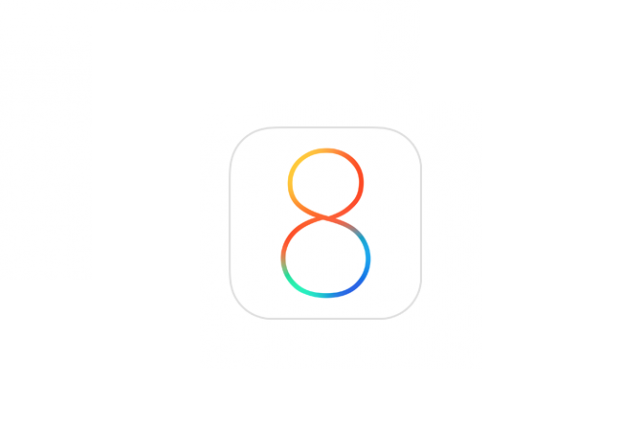iOS 8 review: The best update yet?
iOS 8 is aout but iOS 9 is on the horizon

iOS 8 adds much needed features to core apps like Mail, Safari and also makes notifications more interactive. With HealthKit, iCloud Drive and Continuity on the horizon there's much to look forward too as well.
-
+
Improved security and management features in Mail; Choice of keyboards; Better browsing; Updated Photos app
-
-
Too slow on older devices, HealthKit withdrawn before launch, iCloud Drive and Continuity still in beta
iOS 8 now installed on 68 per cent of Apple devices
Originally published on 08/01/15 by Caroline Preece
The majority of Apple devices are now running on iOS 8
It has been revealed by Apple on itsApp Store Distributionpage that iOS 8 is now installed on 68 per cent of devices, including iPhones, iPads and iPod Touches.
iOS 7 now runs on 29 per cent of devices, which is three per cent down from previous figures, with four per cent of Apple device owners are still using older iterations of the iOS.
The number of people using iOS 8 has risen by four per cent since numbers were last released on 22 December.
It waspreviously reportedthat Apple was disappointed with adoption rates of the new operating system, with just 47 per cent of iDevice users having downloaded iOS 8 by the beginning of October. By theend ofthe month, this had jumped to 52 per cent.
Apple's latest operating system was released on 17 September, when there were various complaints about bugs and problems. One major issue experienced by users was about the size of the update, for which Apple is now being sued.
The argumentis that on devices such as the 16GB iPhone 6, the size of the iOS 8 update diminishes the amount of storage space the phone is advertised for by around 3GB (19 per cent).
Sign up today and you will receive a free copy of our Future Focus 2025 report - the leading guidance on AI, cybersecurity and other IT challenges as per 700+ senior executives
Shortly after the release, Apple withdrew the ability to downgrade to iOS 7 after installing iOS 8, releasing subsequent updates in order to addressongoing teething problems.
iOS 8 now on over half of Apple devices
Originally published on 29/10/14 by Caroline Preece
iOS 8 has now been installed on more than half of Apple devices, up four per cent in two weeks
iOS 8 is now installed on more than half of Apple devices, it has been revealed via a new report on Apple's App Storedevelopers support page.
As reported byMacRumours, Apple's newest operating system has been downloaded on 52 per cent of iOS devices, which is up by four per cent from numbers announced during Apple'sOctober 16 event. At that point, CEO Tim Cook said that iOS 8 had been installed on 48 per cent of Apple devices.
This pushes iOS 7's share down to 43 per cent, with just five per cent using earlier operating systems on their phone, phablet or tablet.
iOS 8.1, designed to fix some of the bugs that had been widely reported by users, was released on October 20, which could explain the steady increase of adopters for the OS over a relatively short amount of time.
The upgrade included support for Apple Pay, the Camera Roll's return and more. Bugs plaguing Wi-Fi connection and screen rotation were also fixed with the update.
At the beginning of October,we reportedthat download figures for iOS 8 had been disappointing, as adoption rates appeared to have paused at just fewer than 50 per cent. At the same point in iOS 7's history, installation figures stood at 60 per cent, a milestone the new OS has yet to meet.
One of the major barriers seemed to be the sheer size of the update, which caused users to complain that they had had to wipe their devices before being able to install the update.
iOS 8 download rate disappoints
Originally published on 08/10/14 by Clare Hopping
Apple's own download stats have shown upgrades have slowed to a crawl
Apple's iOS 8 download statistics have shown that people have not taken up the operating system as fast as expected.
In fact, data displayed on the company's developer portal indicates just 47 per cent of iDevice users have downloaded and installed the update, which is only one per cent more than it was a week ago when Apple last reported download figures.
In comparison, three weeks after iOS 7 rolled out last year, the official installation figures stood at 60 per cent, with a much faster rate of adoption than reported this year.
iOS 8 launched on September 17, but, like any iOS update, it was plagued by customer complaints and problems. Most of these were related to the size of the update, with thousands of users flocking to Twitter and Facebook reporting they had to wipe their devices in order to install the 5.6GB update.
A number of bugs have since come to light in the update, includingincompatibility with Dropboxforcing the company to roll out a second update (iOS 8.0.1) just week after the initial rollout.
Apple was scheduled to includeHealthKit in the first iOS 8 updatetoo, but that had to be pulled before the operating system saw its public release because it wasn't ready for public use - but it was added in iOS 8.0.1. However, after installing the bug fixes, other users reported phone service and TouchID stopped working.
Apple has now rolled out a second update - taking the software up to version iOS 8.0.2 and although that seems to have fixed most of the problems, it probably won't be too long until the company decides to release another tweak.
The company measures the number of people downloading and installing its software updates using by measuring App Store visits over a period of time.
This article was originally published on 23/09/14 and has been updated multiple times (most recently on 12/08/15)
Verdict
iOS 8 adds much needed features to core apps like Mail, Safari and also makes notifications more interactive. With HealthKit, iCloud Drive and Continuity on the horizon there's much to look forward too as well.
-
 ‘They’re more productive than ever’: Marc Benioff says hiring in software engineering is ‘mostly flat’ at Salesforce because of AI – but the company is expanding headcount in one key area
‘They’re more productive than ever’: Marc Benioff says hiring in software engineering is ‘mostly flat’ at Salesforce because of AI – but the company is expanding headcount in one key areaNews Salesforce CEO Marc Benioff has revealed hiring for software engineering has dipped as a result of AI, but the CRM giant is ramping up recruitment in other key areas to push its agentic agenda.
By Ross Kelly Published
-
 Finance and security leaders are odds over cyber priorities, and it’s harming enterprises
Finance and security leaders are odds over cyber priorities, and it’s harming enterprisesNews Poor relations between the departments can be solved by CISOs talking in a language CFOs understand
By Emma Woollacott Published
-
 Microsoft just took down notorious cyber crime marketplace RedVDS – and found hackers were using ChatGPT and its own Copilot tool to wage attacks
Microsoft just took down notorious cyber crime marketplace RedVDS – and found hackers were using ChatGPT and its own Copilot tool to wage attacksNews Microsoft worked closely with law enforcement to take down the notorious RedVDS cyber crime service – and found tools like ChatGPT and its own Copilot were being used by hackers.
By Nicole Kobie Published

